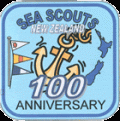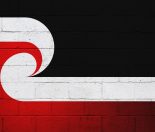Sea Scouts is an additional programme offered to Scouts aged 11 – 16 years, and has an emphasis on water-based activities.
What is Sea Scouts?
Sea Scouts are members of the international Scouting movement, with a particular emphasis on water-based activities, including swimming, snorkelling, lifeguard work, boardsailing, kayaking, canoeing, sailing and rowing. Such activities can take place on lakes, rivers, or the sea.
Sea Scouts provides a chance to sail, cruise on boats, learn navigation, and learn how to work on boat engines.
Sea Scouting can be an additional programme for all Boy Scouts aged from 11 through to 16 years.
History of Sea Scouts
Hoping older Scouts would also be interested in learning about seamanship, Robert Baden-Powell, founder of the Scouting Movement, – with the assistance of his brother, Warrington Baden-Powell, himself a sailor and inventor of canoe sailing – established the Sea Scouts.
While the Sea Scouts started in 1908, the movement was not officially named Sea Scouts until 1912, two years after Warrington Baden-Powell wrote the popular ‘Sea Scouting and Seamanship for Boys’.
Aims & Objectives of Sea Scouts
The aim of Sea Scouts is the same as the Scouting movement generally. This is to encourage the physical, mental, social and spiritual development of young people so that they may take a constructive place in society.
The mission of Scouting is to contribute to the education of young people through a value system to help build a better world where people are self-fulfilled as individuals and play a constructive role in society. This is achieved by:
- Involving them throughout their formative years in non-formal learning
- Using methods that make each individual the principle agent in his or her own development as a self-reliant, supportive, responsible and committed person.
- Assisting them to establish a value system based upon spiritual, social and personal principles.
The main objectives of Scouting, irrespective of division or rank, are to attain the following:
- Satisfy personal relationships
- Develop a sense of group achievement
- Participate in Patrol-selected activities
- Participate in individual hobbies and interests and so promote:
- Health & fitness
- Knowledge & experience in the local & wider community
- Appreciation of and experience in the outdoors
- Opportunities for & training in community service
- Cultural awareness and family involvement
“Sea Scouts” vs “Scouts”
Sea Scouts is not in competition with land-based Scouting. Rather, Sea Scouting is seen as a further enrichment of the Scouting Movement, an additional option for our youth to consider and enjoy. Consequently, Sea Scouts can also belong to the Boy Scouts, combining both water and land-based outdoor activities.
Sea Scouts groups usually follow the regular land based program and then add further elements related to water activities.
When and where do Sea Scouts meet?
Sea Scouts usually meet weekly, in local Scout Halls, boat sheds, or yachting or boating clubs. Contact your nearest Scouting club for contact details and further information regarding your nearest Sea Scout club.
What age can your child start Sea Scouts?
Scouting is split into five different groups:
- Keas: ages 6 to 8 years
- Cubs: ages 7 to 11 years
- Scouts: ages 10 to 16 years
- Venturers: ages 14 to 18 years
- Rovers: ages 18 to 26 years
Sea Scouts is available for both boys and girls aged 11 to 16 years.
How do you progress in Sea Scouts?
Sea Scouting in NZ involves the progressive attainment of various aquatic awards, and has several ranks including: Apprentice, Ordinary, Able, and Quartermaster.
Apprentice
Allows the Scout to qualify as a member of their ship. They need to be able to quote the Sea Scout Promise and the Scout Oath. Youngsters learn seamanship, safety and swimming.
Ordinary
Additional skills learned include identifying the different types of boats, knots, piloting and sea communications.
Able
Skills Include conducting opening and closing ceremonies, a Sea Scout presentation to Cubs and Boy Scouts, learning maritime history, plus continuing to develop seamanship skills.
Quartermaster
Includes leading others in a service project, attaining a high level of navigation skills, and taking command of a vessel for at least 48 hours. Quartermaster rank (which is the Sea Scout equivalent of Eagle in Scouting) is extremely difficult to attain, with just a handful of Sea Scouts earning this rank each year.
Venturers
The next step up from Sea Scouts is Venturers, for teens aged from 14 to 18. Venturers are responsible for their own programmes which include a range of adventurous, vocational, social and spiritual activities that extend the Venturers and develop their self confidence, leadership, team and life skills.
Rovers
From there Venturers progress to becoming Rovers. Rovers is for young adults aged 18 to 26, with associate members aged 20 to 34. In addition to their own programmes of interests and achievement, Rovers also provide service and assistance to the Scout movement and their local community.
Sea Scouts can continue to progress through the general Scouting movement into adulthood, eventually becoming a Sea Scout (or Scouting) Leader should they choose.
What equipment do you need for Sea Scouts?
Clothing worn should be suitable for the activity being undertaken in the interest of health and safety of participants.
All members who have made the Sea Scout Promise are entitled to wear an approved uniform.
Over time, there will be requirements such as swimming and camping equipment, as the young Sea Scouts enjoy the various outdoor and water activities provided.
How much does Sea Scouts cost?
The cost per annum for membership, including activities, is around $200.
The cost for the basic Sea Scout uniform consisting of a shirt and scarf is around $40 – $50.
How much time does Sea Scouts take?
Weekly meetings vary depending on age group, but are around one to two hours per week after school.
There is also extra time required, particularly during the weekends and holidays, for extracurricular activities, in particular scout camps and outdoor water-related pursuits.
Great Sea Scouts Websites
Official website of the Sea Scouts in New Zealand.
The official website of Scouting New Zealand. Includes information and links on all things Scouting in this country.
Website for Sea Scouts worldwide, and includes discussion groups and downloads. Helpful for interested families, Sea Scouts and Leaders.






